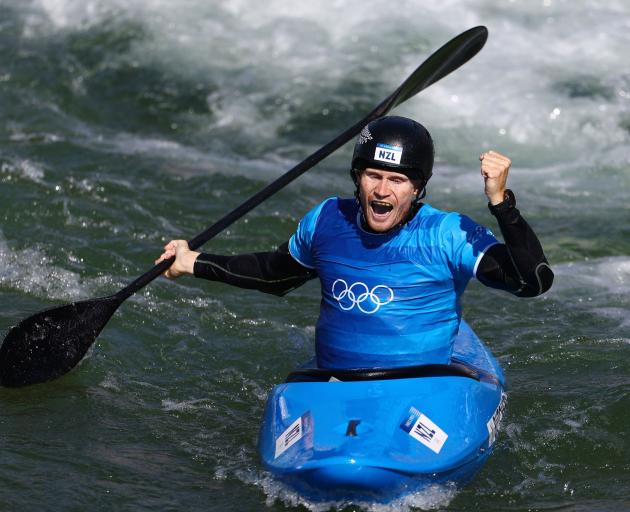
Since then, he wants New Zealand to beat Australia every time and still talks of 1976 when the "lucky country" came home with no gold medals while New Zealand won two, but Australia’s performance in Paris means Norm’s had a tough time.
The fixation about winning or, in Olympic speak, "podiuming" which has replaced the equally ugly "medalling", has produced the inevitable "medals per population" system which suits Norm nicely. He insists, "It’s golds per population that really count. New Zealand has 10 golds with 5 million people — that’s two golds per million. Australia has 18 golds with 26 million — that’s only 0.7 golds per million. Kiwi! Kiwi!".

As that great intellectual Christopher Luxon has told us, Australians are "incredibly simple".
When American sportswriter Grantland Rice penned the comforting words for sport’s losers, "For when the One Great Scorer comes to mark against your name, He writes — not that you won or lost — but how you played the Game", he probably didn’t have the Olympic Games in mind. Nor is the One Great Scorer much bothered about who won the breakdancing — nor is anyone in New Zealand, I imagine, as Razor is rather too old to have made the cut.
Winning remains the aim and early in the Games, with the United States well below the Chinese gold medal total, American media took to running a league table using only the total number of all medals and so took top spot. In the end, with golds equal, the traditional method was used.
About 12 years ago New Zealand computer scientist Craig Nevill-Manning helped promote the "medals per population" method and at Paris, barring the odd medal won by three tiny Caribbean countries, New Zealand tops the poll and Australia comes in about seventh, so Norm reminds me.
Two American scientists have designed a system to "find the probability that a country could win as many medals as it did, if all people worldwide had equal sporting capacity". It uses a maths calculation known as "binomial probability". Google "Olympic Probability Rankings" and you’ll learn all about it even if, like me, you don’t entirely understand it. The final Paris ranking will probably show Australia in the lead and New Zealand not far behind.
The Australian sporting success is outstanding and almost makes you forget about the underarm and sandpaper days. After the 1976 disaster "something had to be done". Thus the government-funded Australian Institute of Sport was founded in 1981 and since then Australia has won plenty of medals. But Norm never forgets the 1984 games where we won eight gold medals to Australia’s four. You may remember the television ad set in Australia and fronted by Kiwi Peter Gwynne who extolled the virtues of a paint which featured gold in its name, "But we haven’t seen much of that here", was the gist of the tagline.
But let’s ignore the mathematics and population figures. It’s individuals who make it heartwarming. I grew up being told of ex-Dunedin student Jack Lovelock and Dunedin’s Yvette Williams and first followed the Olympics in 1956 when Norman Read won the 50km walk. That he was an English immigrant had to be accepted and the battle he had to convince the selectors to have him in the team at all enhanced his legend. Then in 1960 on a magic afternoon in Rome Peter Snell and Murray Halberg won gold in two classic Olympic races. Later came John Walker and Danyon Loader. Were you lucky enough to be in the Octagon when Loader was welcomed back to his home town after winning two golds at the Atlanta Olympics? Loader wasn’t the only one with tears in his eyes, I can tell you.

That they won medals halfway round the world somehow means just a bit more when Butcher and Shields both attended Dunstan High School in Alexandra. They’re pretty well my next-door neighbours. That really brings the Olympics close to home.
— Jim Sullivan is a Patearoa writer.












